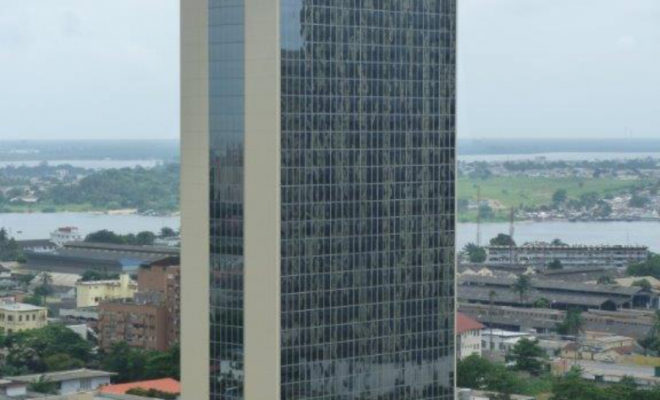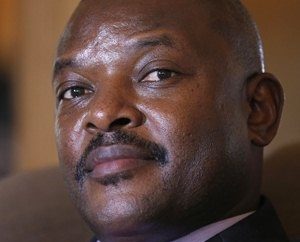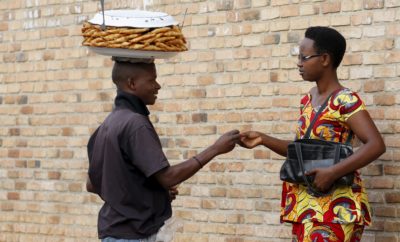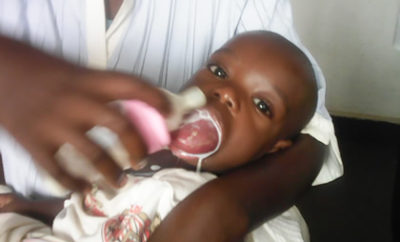
Burundi News: Organization BAD in Burundi – Assessing a country in crisis
The African Development Bank (AfDB) Independent Evaluation of Development (IDEV) has published a report assessing the impact of US $ 739 million on AfDB’s support for Burundi’s development. The evaluators worked in a difficult context marked by five years of political and economic turmoil.
The evaluation of the Bank’s strategy and program in Burundi by IDEV sought to determine the effectiveness of the African Development Bank’s strategy and program in the country during the period 2004-2015. Burundi was one of the 14 countries selected to assess the performance of AfDB interventions as part of the Bank’s Overall Assessment of Development Results, the largest assessment ever conducted in 50 years. History at the ADB. Particular attention was paid to the fragile context of Burundi and its Impact on BAD strategies.
According to the IDEV report, in terms of economic performance, the main contribution of AfDB operations to the country’s growth has been through infrastructure projects. On the other hand, there has been a positive development in mobility, transport costs and access to electricity. However, their impacts on economic growth and poverty reduction remained limited in a context of severe external and internal constraints. Indeed, the weak diversification of the economy restricts the country’s export capacity and hampers national and cross-border trade. Internal constraints, especially those related to fiscal, legal, economic and political instability, represent real threats. As a result, signs of sustainable growth in economic activity and income over the long term are barely visible.
The evaluation presents a series of recommendations for the future ADB engagement strategy in Burundi. According to IDEV, emphasis should be placed on the development of economic activities that promote integrated markets within the East African Community. An economic growth strategy should be accompanied by actions to reduce vulnerability through inclusion and resilience to climate change. The AfDB should provide budget support, ensuring the economic and financial viability of the investment policies implemented by the Government, and coordinate investment projects financed with internal and external resources. Finally, IDEV recommends that the AfDB re-establish dialogue with the Government of Burundi on governance and public finance management and on private sector development issues and advise the establishment of a monitoring and evaluation system.
IDB management has welcomed IDEV’s recommendations, adding that the institution will take into account the “fragility angle” in the current Country Strategy Paper and in the new Country Strategy Paper 2018-2022 , In order to better respond to situations of fragility and to fight against the socio-economic impact of the crisis. The Bank does not intervene directly on political issues. However, it can contribute to the process of consolidating peace and reconstruction through strategic dialogue, partnership and advocacy on fragility issues, and through the deployment of Pillar III resources from the Transition and trust funds.
In response to IDEV’s findings, AfDB Management is committed to “continuing dialogue on maintaining macroeconomic stability, especially macro-fiscal stability, as well as on policy sustainability and public financial management reform And strengthening economic governance “.
The Evaluation Context
The AfDB is one of Burundi’s key partners. According to OECD data, ADB ranked fourth in the list of major donors (including the IMF) in terms of volume, in terms of assistance to Burundi during the period, behind the Bank Group The European Union and Belgium. It has played a major role in boosting cooperation and normalizing relations with international partners, particularly by mobilizing the second pillar of the Fragile States Facility, settling arrears due to the Bank, and preparing for (HIPC) Debt Relief Initiative (HIPC) in August 2005. Between 2005 and 2010, the country undertook social and economic reforms and succeeded in strengthening the framework for assistance The international community.
Progress had also been made in the management of public finances and attempts had been made to define strategies for infrastructure, private sector development, education and health. After 2010, the pace of reforms has slowed down, strategies have not been fully implemented and coordination has weakened.
Corruption has severely hampered development programs and projects in Burundi. The 2012 Global Governance Indicators ranked Burundi 51st out of 54 countries in Africa for its performance in terms of reducing corruption.
Mr. Rakesh Nangia, General Appraiser at the ADB, said: “The fragility context in Burundi presented many challenges for an evaluation team. IDEV is committed to making reliable and comprehensive reports on progress in development and is mandated to use any innovation process necessary to achieve their objectives. ”
IDEV’s approach to Burundi
The evaluation team faced three main challenges in collecting relevant data at the country level. First, the political crisis and the violence that was taking place hampered planned field visits, making it difficult to collect data and documents and meeting with program stakeholders. Second, the team gradually discovered gray areas in the implementation of programs. Either development outcome data were inaccessible or responses were biased due to personal interests. Finally, the prevalence of fragility was a challenge for evaluators to predict the sustainability of development outcomes, which depend largely on the government’s ability to maintain stability.
The IDEV evaluation team responded to the challenges by finding alternative ways of obtaining the quantity and quality of data required to produce the report. A preliminary country visit by the evaluators took place in April 2015 with the primary objective of gaining the support of the Burundi government. During the mission, the team collected as much data as possible from files stored on computers in the offices of the government departments. It also conducted individual interviews with government ministers, local authorities, private sector organizations and development partners.
Les évaluateurs d’IDEV jugeaient nécessaire de retourner au Burundi, mais les violentes manifestations dans la capitale résultant des campagnes électorales ont empêché une seconde visite planifiée. Ils ont continué à collecter leurs informations à distance, en organisant des vidéos conférences et des entretiens téléphoniques avec des chefs de projets du Burundi lors d’un atelier intensif de trois jours à Abidjan en novembre 2015.
Vers la fin de l’année, les évaluateurs avaient compilé assez de données, complétées par l’étude des évaluations par les partenaires et d’autres institutions afin d’analyser les quinze projets de la BAD sélectionnés, à l’exception des secteurs de l’agriculture et de l’eau. Des spécialistes burundais de l’évaluation indépendants furent recrutés localement pour visiter deux opérations dans ces domaines en décembre 2015.
La compilation des résultats de ces multiples sources d’information a produit les rapports d’évaluation des résultats de projets sur lesquels l’évaluation, la conclusion et les recommandations du rapport sont basés. Les calculs relatifs à la durabilité étaient cependant basés sur des prédictions, dû aux faibles ressources et capacités des structures d’entretien burundaises notées par la mission.






